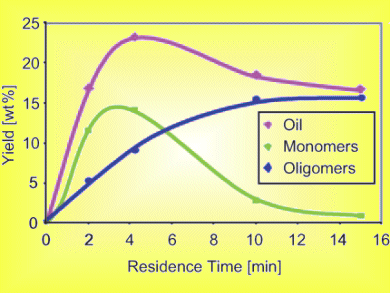Interest in lignin as a renewable feedstock stems from its abundance: it constitutes 20 % of terrestrial biomass. Its conversion to bio oil can be performed under mild conditions by hydrolysis, but yields remain low — typically 20-25 wt %.
Johannes Lercher and colleagues, Technische Universität München, Germany, have shown that the oil yield is restricted to 23 wt % due to the formation of unwanted oligomers. Phenolic monomers were shown to be the primary products of lignin depolymerization and monomer yields could be adjusted by adjusting the reaction conditions. Consecutive condensations of the monomers resulted in the formation of oligomers. This could be prevented by addition of boric acid as a capping agent leading to product yields over 85 wt %.
- Towards Quantitative Catalytic Lignin Depolymerization
V. M. Roberts, V. Stein, T. Reiner, A. Lemonidou, X. Li, J. A. Lercher,
Chem. Eur. J. 2011.
DOI: 10.1002/chem.201002438


![Synthesis of [c2]Daisy Chains via Mechanochemistry](https://www.chemistryviews.org/wp-content/uploads/2025/04/202504_RotaxanesWithSolidStateMechanochemistry-125x94.png)

